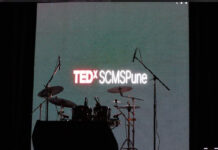By Rhea Grover
As I laid my hands on the first book of the much exalting Shiva Trilogy, my eyes straight away went to a quote that was on it, ‘Amish is… the Paulo Coelho of the East.’ Now, I’m not one to judge a book by it’s cover, and this was literally on a cover and that too on the cover of a book that I thought to be greatly over-hyped at the time. In fact, my deep admiration for Paulo Coelho’s work urged me to think otherwise since I rendered it impossible that another writer could capture the depth of Coelho’s work with the same brevity. Don’t get me wrong, I don’t mean that there is no writer worthy enough to be compared with him, but every writer has their style and to be compared to a writer in the cover of your book not only leaves a big question mark on your uniqueness but also means that you can only be the second best at that particular style. But I guess the urge to disprove this quote (read as: boredom) lead this book from the store to my shelf.
As I went through the first few pages, I could feel a sense of accomplishment for judging the book and it’s writer perfectly (judgmental level – 100) but slowly Amish’s mystical ways grew on me and I found myself flipping the pages with a burgeoning speed. His ability to question the very social fabric that constitutes our society today and challenge the norms that make up ‘normal’ by drawing a parallel to the ideal society in Shiva’s time is something that I haven’t seen in many Indian writers. Burnished with a hint of mystique, the book encapsulates an array of philosophical ideas through it’s enchanting storyline and portrayal of emotions which are relevant in today’s paradigm. It takes you away from reality to make you understand the real world like never before.
Amish’s rendition of the legend we know as Shiva, is a delight for an Indian reader. Having said that, there is one question that is still left unanswered and that is if Amish really is akin to Paulo Coelho? While I revere them both immensely for their way with words, the latter probably a little more due to the exposure I’ve had to his books, and they both gained popularity through targeting the realm of what seems unreal but that’s as far as their similarities go. So, well, no. But was I right about Amish? Not at all. It so happens that every time I read a book that has been a part of the ‘buzz’, needless to say, I was highly disappointed. But the combination of fantasy with substantive inference makes the Shiva Trilogy a very celebrated exception.

































